ADHD Kids and Masking: What It Really Means to Teach Social Reciprocity | Ryan Wexelblatt, LCSW, ADHD Dude

The word masking gets used a lot when talking about neurodivergent kids, especially online. But after more than 20 years of working with kids with ADHD and autism, I’ve seen that most people using the term aren’t talking about the same thing. They’re using masking to describe something that, in many cases, is really about learning how to relate to other people.
What some call masking, I call reciprocity. And it matters—especially for kids with ADHD who want to form friendships but struggle with the skills to keep them.
What “Doing a Fake Out” Really Teaches
In my school year programs and Trip Camp, I have always taught the kids a concept I call doing a fake out. It’s a way to teach them how to show interest in what someone else is saying, even when it’s not a topic they’re excited about.
Why? Because that is what relationships are built on. We all want to discuss things we enjoy, but conversations aren’t one-sided. If you want someone to listen to you talk about your favorite game, you also need to make space for their interests, even if those interests don’t match yours.
This isn’t about being fake. It’s about being considerate. And that is how we teach social reciprocity.
What Parents Often Get Wrong About Masking
When people comment on videos like this, they sometimes say I’m encouraging kids to hide who they are. That’s not the goal. I am teaching them how to relate to others in a way that helps them feel included and respected.
Many kids with ADHD need help managing their behavior in social situations. If a child says whatever comes to mind without thinking about how it affects others, they may make people uncomfortable without realizing it. Teaching them to pause, think, and adjust their approach is not harmful. It’s how they learn to connect with others.
In my previous work at a school for kids with autism and in private practice, I worked with many boys and young men who wanted friendships but lacked the skills to build and maintain them. I taught them how to notice what made others feel safe and respected, and how to change behaviors that created discomfort.
That’s not about pretending. It’s about learning.
Confidence Comes from Connection
There is a common idea that self-esteem comes from loving yourself. That’s part of it, but it’s not the whole picture. Kids gain confidence when they feel that others enjoy being around them. They believe in themselves more when they experience real friendships, not just adult praise.
If a child with ADHD wants friendships, they need tools to understand how relationships work. That means learning to give as well as receive. It means developing the ability to listen, take turns in conversation, and understand how others feel.
Many kids with ADHD are still developing these skills. That’s why I created the Socially Smarter course inside the ADHD Dude Membership—to teach those skills in a way that actually makes sense for ADHD brains.
Building the Skills That Help Friendships Stick
Social reciprocity, perspective-taking, and emotional regulation are all part of what we call social executive functioning. These are skills that can be taught, just like reading or math.
Inside the ADHD Dude Membership, parents will find the tools to support this growth. That includes our flagship programs:
Along with:
- Socially Smarter (ages 4 to 17)
- Executive Function Crash Course helps kids build the skills needed for independence, such as task initiation, time awareness, and persistence.
Together, these programs help families move from confusion to clarity and support their child’s growth in a way that builds both confidence and connection.
This Is About Skills, Not Scripts
What we teach isn’t about memorizing phrases or acting a certain way to please others. It’s about understanding what makes relationships work and helping kids with ADHD apply those insights in real life.
The kids I work with want friendships. They want to be included. They just need the tools to make that possible. When we teach those tools with respect and structure, we help them build the foundation for long-term independence.
If you want to support your child’s social development, the ADHD Dude Membership provides the guidance and structure to do so.
👉 Visit ADHDDude.com to learn more and access all courses inside the membership.











